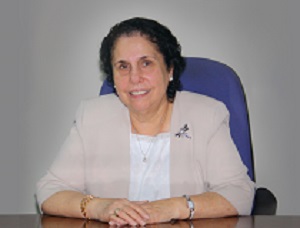
Sri Lanka
Aban Pestonjee
- Founder and Chairman, Abans Group (Diversified)
Born Mumbai, India, 1936. Advanced Level at Good Shepard Convent, Kotahena.
“You learn when you make mistakes, and then you come out stronger because you know more about the business even after that.”
Summary
Aban Pestonjee, Founder and Chairperson of Abans Group, describes the unusual origins of her business in Sri Lanka in 1968, when she was a young housewife and mother to three. Overwhelmed by the constant demands of the house wife, she recalls thinking, “This is not what life is about… there must be something better here that I [can] do for the housewife.” Thus, Abans Group was born. In the interview, Pestonjee describes her ingenuity in overcoming Sri Lanka’s closed economy and ban on foreign luxury imports, and how she developed her business model around customer satisfaction and product guarantees—two qualities that have come to be the cornerstone of Abans Group today.
In the interview, Pestonjee describes her struggles with capital raising in the early days of her business, when she was working out of her garage buying, refurbishing, and re-selling used household appliances like washing machines and floor polishers. She also reflects on some of the strategies that set her apart from her male competitors, including her keen awareness of the importance reputable brand name products for Sri Lankan consumers. “I had an edge over [my competitors],” she recalls. “Being a housewife [myself], I knew exactly what the housewives wanted.”
Pestonjee goes on to explain how the opening of the Sri Lankan economy in the late 1970s impacted her growing business. She describes how she worked to gain franchise contracts with major British brands like Hoover and Electrolux, as well as Japanese brands like Mitsubishi. Pestonjee discusses the challenges she encountered overcoming manufacturers fears about a single agent representing multiple, competing brands. She also reflects on the challenges she faced when she first began to introduce Korean brands, like LG (formerly Gold Star) in Sri Lanka. She explains how she slowly began to convince hesitant Sri Lankan consumers to try Korean brands by emphasizing the Abans backing and after sales services offered by her company—revealing how the power of her company’s own brand and reputation for quality had grown since she founded the business in the late 1960s.
Over time, Abans Group began to diversify into food, hospitality, finance, advertising and development, and has also begun to venture abroad in Dubai and India. In the interview, she explains how many of these new initiatives were led by her children when they joined the family business after going abroad for schooling. She reveals that, sometimes, she would initially feel skeptical about some of her children’s proposals, but she ultimately placed faith in their judgement and gave them latitude to take decisions for the Group. She credits the persistence of her children with Abans’ contracts with the McDonalds franchise and the establishment of the Group’s finance division. Despite the prominent role played by the family, however, Pestonjee emphasizes the role of professional managers in the company, and describes deliberations and preparations currently underway to take the company public in the coming years.
Pestonjee concludes the interview by discussing corporate culture at Abans Group, and how she has managed to maintain the same level of service and commitment to quality with over 13,000 employees. She explains her continuing practice of personally visiting Abans showrooms across the island, the strategy of shifting employees to new locations to prevent complacency and idleness, and the great emphasis on and investment in job training for employees. She also reflects on the Group’s initiatives for social and environmental responsibility, and her ties to Sri Lanka’s shrinking Parsi community.
Video Clips by Topic
Diversification
Aban Pestonjee, one of Sri Lanka's most prominent entrepreneurs and the founder of Abans Group, one of the country's largest business groups, discusses the early diversification from import and retail into a wider range of activities, including her son's championing of a McDonald's franchise business.
Keywords:
Sri Lanka, Diversification
Additional Resources
- Mrs. Aban Pestonjee Named Sri Lanka’s Entrepreneur Of The Year 2017
- About Abans Group
- Brief overview of Sri Lankan Parsi community
- Jamsheed K. Choksy, “Iranians and Indians on the Shores of Serendib (Sri Lanka),” in John Hinnells and Alan Williams (eds), Parsis in India and the Diaspora (New York, Routledge, 2007), pp. 181-210.
Interview Citation Format
"Interview with Aban Pestonjee, interviewed by Geoffrey Jones, Mumbai, India, July 13, 2017, Creating Emerging Markets Oral History Collection, Baker Library Special Collections, Harvard Business School."
